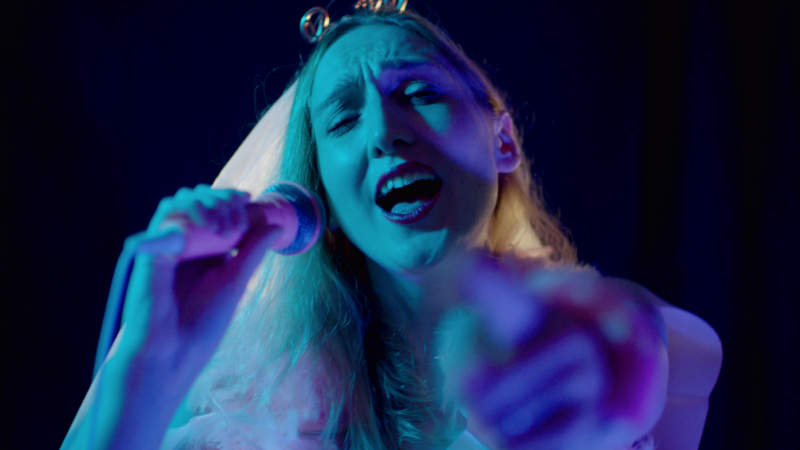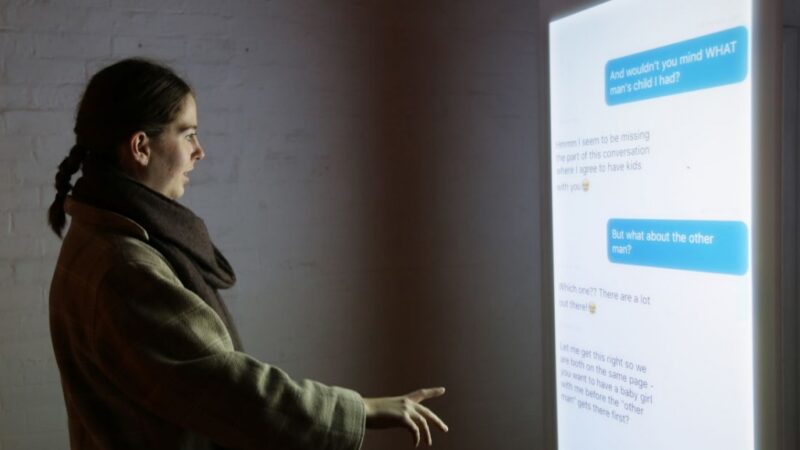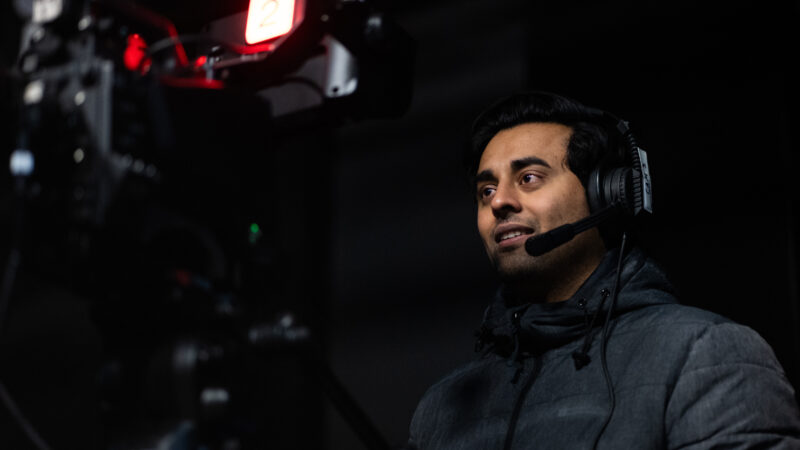When Bristol Old Vic decided to re-mount their critically acclaimed production of Handel’s Messiah, they also filmed it, extending its reach to online and cinema audiences around the world. Artistic Director Tom Morris tells Eleanor Turney how important it was to capture the atmosphere of live theatre and why he thinks Messiah speaks to modern day audiences.
Filming Handel’s Messiah, where the audience is part of the narrative
Traditionally, Handel’s Messiah is staged as a concert work for singers and orchestra. Tom Morris’s production at Bristol Old Vic also featured four different actors as The Stranger/Christ. For one performance only Toby Jones, Nir Paldi, Jamie Beddard and Jessica Murrain joined music director Harry Bicket, The English Concert, the Erebus Ensemble and soloists Julia Doyle, Catherine Wyn-Rogers, Joshua Ellicott and Brindley Sherratt.
Drawing on the tradition of Passion Plays, from Europe to the Philippines, each night offered a ritualised and unique performance carried by some of the most sublime music ever written. Messiah is an exploration of death, of belief and celebration of the resurrection. It has the power to speak to believers and non-believers alike. Having decided to stage the piece in this way, I ask Morris why he wanted to film it, too.
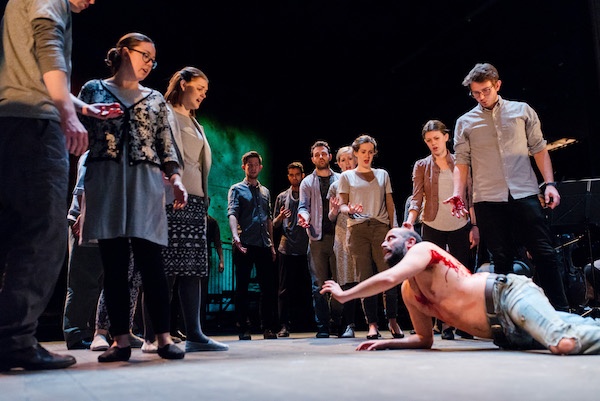
His answer starts, as Morris often does, with his deep love of Bristol Old Vic as a space:
“I’m always interested in this theatre because it’s so unusual. It was built in order to contain a live two-way relationship between the stage and the audience…You have performers surrounded by audience, and meaning is visibly constructed in that interaction. I am very interested in what might happen if you film live performance with an awareness of that, where the presence of the audience is part of the visual narrative that you’re capturing…My prime objective is to get people to go to the theatre and experience things live, so we wanted to try to film in a way that captures the atmosphere …not pretending that the theatre audience isn’t there, but is relishing their presence.
“This is our first film experiment as a theatre and it’s famously difficult for theatres to cross the bridge into digital capture. But actually, we very quickly got into a groove about how to film it. If you watch the film you would probably say you’re not that aware of the filming process, but it is actually quite innovative for a theatrical capture. It’s got a lot of camera angles you wouldn’t normally have. And you do see the architecture and you do see the audience. It is very intimate and it follows the emotional story.”
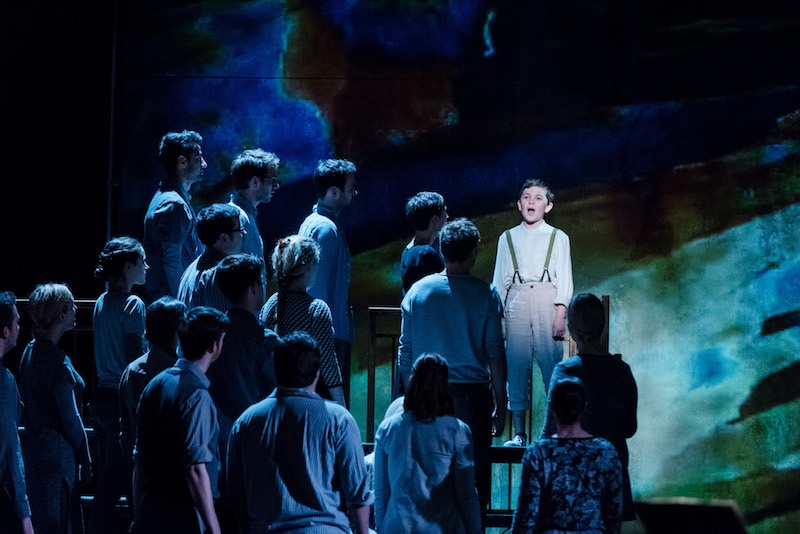
Staging the music
Given that the music is the central part of Handel’s masterpiece, I ask Morris what motivated him to stage the piece in a theatre in the first place?
“Well,” he says, “Handel was a dramatist. In other words, his instincts were to use music to explore conflict, but when (for instance) you listen to the music of Bach you can hear the conflict in most recordings, but in recordings of Messiah, you hear these angelic cadences and you don’t hear any conflict… I started to read up about the history of Messiah and discovered that it was quite controversial originally, because it’s a secular take on a sacred text.”
It was also controversial because Handel insisted that at the first performance, the main female part be sung by an actress rather than an opera singer: “The actress happened to be someone who was a sort of disgraced figure, because she was divorced, and there was all sorts of controversy over it. But the significant thing was that she was an actress not an opera singer. Why on earth would he have done that?`’ For Morris, the reason seems clear: “I listened to the music again and thought, well, if we were to consider this as being dramatic, not in its story but in its dynamic, if we were to allow for the possibility that Handel is animating conflict, what is the conflict he might be animating? And quite quickly I got excited about the possibility that he was dramatising belief; the core of Messiah story, and at the core of Christianity, is a group of people who have a really charismatic leader who gets killed.”
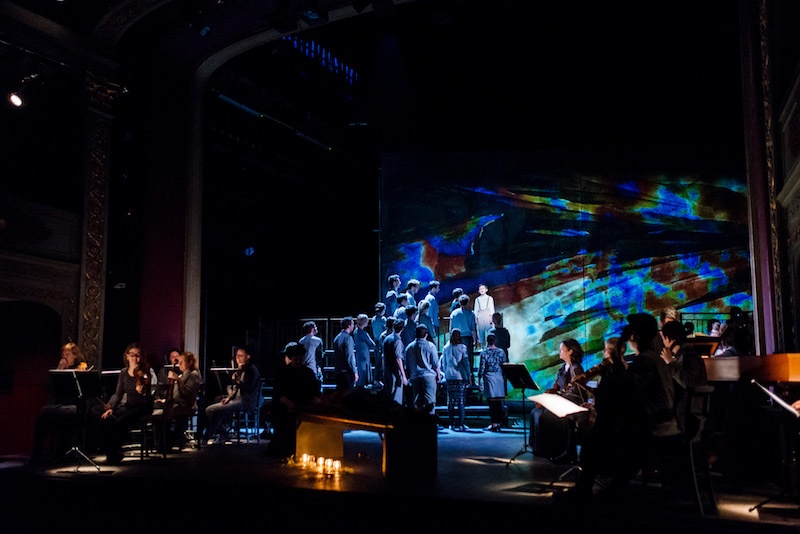
Faith in the drama
As a starting point for drama, it’s a potent one. Morris speaks rapidly and eloquently on the topic of resurrection, and the difficulties inherent in having faith.
“You have what psychologists describe as cognitive dissonance. If you imagine a funeral, the priest talks about the dead person being in the company of angels, or God, or other dead people, or in a better place, at the same time as being stood right next to a corpse which is visible in this place.
“There are two ways of understanding that, I think. One is that it’s a sort of self-deluding fantasy. And the other is that there’s something profound in the human imagination which allows us to exert a muscularity of belief or imagination to create a narrative to overcome the facts of grief. Looking at the process of faith like that becomes, for me, very moving and very inspiring.” He continues: “There’s a line in the Messiah, which is ‘I know that my redeemer liveth’, and, as it’s normally sung, this is played quite plainly: I know this, I know my name, I know that. And that is very interesting but it’s not very dramatic. If you place that singer next to the corpse of the person they’re singing about, as they would be in a funeral, and they’re saying, ’I know this person lives’, then suddenly I can hear the work that the music is doing. It becomes about the architecture of belief, the bridge that the imagination builds towards a different narrative – which is faith. So this version of Messiah is really an exploration of that, of the effort it takes to believe something hopeful in the face of overwhelming evidence to the contrary, namely death.”
Reaching audiences
The live recording of Messiah opened in cinemas around the UK and abroad in Easter 2018 and, in a partnership with Apple Music, Bristol Old Vic have already released several arias from the shows online.
“They’ve been watched all over the world,” says Morris. “That was a test, and there is an appetite for it… if this cinema tour comes off then we’ll start earning some money back from it which is incredible. So now we’re going, alright, what are we going to do next? What might be the right next project to capture?”
And delighted though they are with how it turned out, there are things they would change next time:
“What we’ve got is incredibly beautiful. It looks like Caravaggio paintings. But if we were doing it again, I’d resolve to give more time for the collaboration between the theatrical lighting designer and the director of photography for the film, because you could see how that could go even further.”
Messiah was at Bristol Old Vic as part of the Bristol Proms in 2013, and again over Easter in 2017. The performance was broadcast in cinemas across the UK in March 2018.
Eleanor Turney is a freelance writer, editor and arts consultant.
How useful was this resource?

